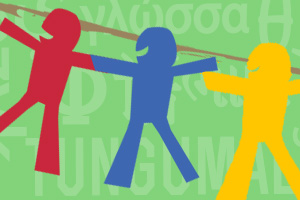UOIT celebrates International Mother Language Day festival
March 20, 2014

University of Ontario Institute of Technology (UOIT) students, faculty and staff celebrated the rich diversity across campus at the International Mother Language Day festival on March 19. Hosted by UOIT’s Student Experience Centre, Durham College’s (DC) International office, as well as the shared Diversity office of UOIT and DC, the event featured live performances, cultural exhibitions and free food. It also included an open-mic component, where students had the opportunity to participate in on-stage cultural performances as a way of educating others about their heritage.
“UOIT is proud to have so many cultures represented within its community,” said Olivia Petrie, Assistant Vice-President, Student Life. “This event provided the perfect opportunity for students, faculty and staff to share aspects of their heritage with their peers, learn about each other and appreciate the diversity we have across campus.”
The following student groups participated in the event:
- Aboriginal Student Circle
- UOIT Conversation Café
- World University Service of Canada
In addition, student groups represented heritage from:
- Afghanistan
- Austria
- Bangladesh
- Brazil
- Botswana
- China
- Canada
- Egypt
- East Africa
- India
- Jordan
- Nigeria
- Pakistan
- Palestine
- Saudi Arabia
- United Arab Emirates
International Mother Language Day was recognized in 1999 by the United Nations’ Educational, Scientific and Cultural Organization (UNESCO) and has been celebrated across the globe since February 2000.
The goals of this festival are to:
- celebrate diversity
- encourage students to showcase their linguistic and cultural diversity
- inspire the campus community to consider learning a new language
- raise awareness of mother tongues, cultures and heritage



